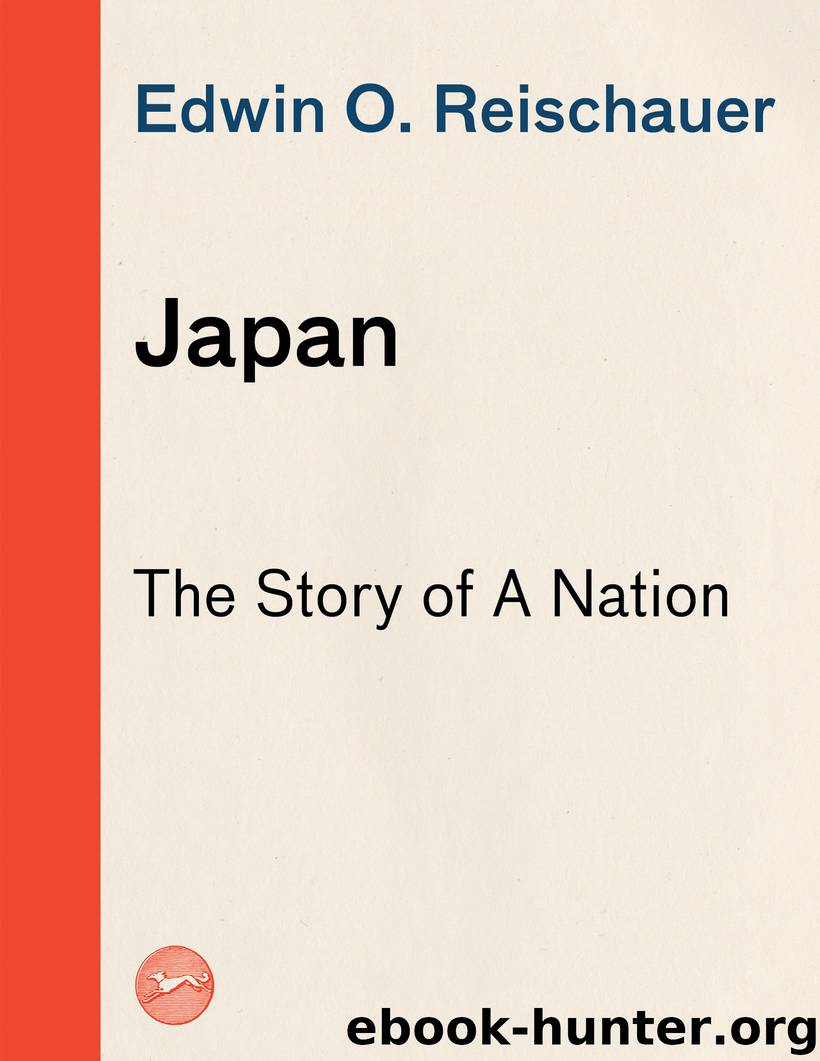Japan by Edwin Reischauer

Author:Edwin Reischauer
Language: eng
Format: epub
Publisher: Knopf Doubleday Publishing Group
Published: 2020-01-28T16:00:00+00:00
Japanese intellectuals have always drawn a sharp distinction between the early reforming years of the occupation, of which they in general approved, and the occupation’s later years, when a 180-degree turn to conservative and even reactionary policies was thought to have occurred. It is true that during 1947 and 1948 there was a general shift in the spirit and emphasis of the occupation. By that time most major reforms had been completed or else were well under way. The focus of interest began to shift from reform to economic recovery, as the success of the reforms now seemed less doubtful than the economic viability of Japan itself. In 1946 industrial production had dropped to a seventh of what it had been in 1941, and even agricultural production was down to three-fifths. Meanwhile the population, under the impact of the return of 6 million Japanese from abroad and the postwar baby boom resulting from the reunion of long-separated families, had soared to around 80 million. It seemed doubtful that adequate sustenance for that many people could ever be found on so narrow a geographic base. The sweeping reform programs had forced the government to live beyond its means, contributing to a rampant inflation of more than a hundredfold, while the possibility of further reforms made it difficult to stabilize the economy and start its reconstruction.
Japan had suffered considerably more from the war than any of the other major combatants and had recovered appreciably less. The Japanese were living at a bare subsistence level, and at that on American largess—a dole of close to half a billion dollars a year. In the long run, democracy or political stability of any sort would be impossible without economic stability. Political and social reforms, however desirable in themselves, had little chance for eventual success without a sound economic foundation.
Outside of Japan, the world situation also contributed to the change in the spirit of the occupation. At the end of the war Japan had been a defeated, isolated nation facing a united, triumphant world. There seemed ample time for reform, and its economic progress seemed to be a matter of concern for the Japanese alone. But the unity of the outside world had withered in the chill winds of the Cold War. By the autumn of 1948 it was clear that the Communists were winning the civil war in China. Much of the rest of Asia was in chaos. There was obviously no united world, but a growing division into what seemed at the time to be two hostile camps, with Japan standing on the border between them both geographically and politically. MacArthur and his staff still concentrated on reforming Japan, but in Washington Japan was seen as a potential battlefield in the Cold War and, because of its once considerable industrial power, possibly an important factor in the worldwide contest.
Economic recovery thus became a major objective in itself, and reforms that seemed to conflict with it were modified or dropped. It was at this time
Download
This site does not store any files on its server. We only index and link to content provided by other sites. Please contact the content providers to delete copyright contents if any and email us, we'll remove relevant links or contents immediately.
Cecilia; Or, Memoirs of an Heiress — Volume 1 by Fanny Burney(31326)
Cecilia; Or, Memoirs of an Heiress — Volume 3 by Fanny Burney(30929)
Cecilia; Or, Memoirs of an Heiress — Volume 2 by Fanny Burney(30886)
The Great Music City by Andrea Baker(21197)
We're Going to Need More Wine by Gabrielle Union(18067)
Bombshells: Glamour Girls of a Lifetime by Sullivan Steve(13102)
Pimp by Iceberg Slim(12924)
All the Missing Girls by Megan Miranda(12741)
Fifty Shades Freed by E L James(12445)
Norse Mythology by Gaiman Neil(11876)
Talking to Strangers by Malcolm Gladwell(11865)
Crazy Rich Asians by Kevin Kwan(8343)
Mindhunter: Inside the FBI's Elite Serial Crime Unit by John E. Douglas & Mark Olshaker(7831)
The Lost Art of Listening by Michael P. Nichols(6465)
Enlightenment Now: The Case for Reason, Science, Humanism, and Progress by Steven Pinker(6404)
Bad Blood by John Carreyrou(5763)
The Four Agreements by Don Miguel Ruiz(5504)
Weapons of Math Destruction by Cathy O'Neil(5032)
We Need to Talk by Celeste Headlee(4863)
